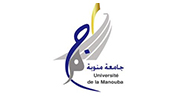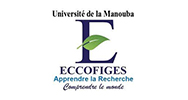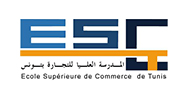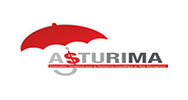1. Alwan, A. H., & Bougatef, K. (2024). The Quality of Tax Accounting in Accordance with International Internal Auditing Standards: The Case of Iraq. Tec Empresarial, 19(1), 29-48.
2. Arfaoui, N., Naeem, M. A., Boubaker, S., Mirza, N., & Karim, S. (2023). Interdependence of clean energy and green markets with cryptocurrencies. Energy Economics, 120, 106584.
3. Arfaoui, N., Yousaf, I., & Jareño, F. (2023). Return and volatility connectedness between gold and energy markets: Evidence from the pre-and post-COVID vaccination phases. Economic Analysis and Policy, 77, 617-634.
4. Atri, H., Teka, H., & Kouki, S. (2023). Does US full vaccination against COVID-19 immunize correspondingly S&P500 index: Evidence from the NARDL approach. Heliyon, 9(4).
5. Attia, E. F., Khémiri, W., & Mehafdi, M. (2023). Does ownership structure reduce earnings manipulation practice of Egyptian listed firms? Evidence from a dynamic panel threshold model. Future Business Journal, 9(1), 34.
6. Attia, E. F., Tobar, R., Fouad, H. F., Ezz Eldeen, H. H., Chafai, A., & Khémiri, W. (2023). The Nonlinear Relationship between Corporate Social Responsibility and Hospitality and Tourism Corporate Financial Performance: Does Governance Matter?. Sustainability, 15(22), 15931.
7. Ayed, N., & Bougatef, K. (2023). Performance Assessment of Logistic Regression (LR), Artificial Neural Network (ANN), Fuzzy Inference System (FIS) and Adaptive Neuro-Fuzzy System (ANFIS) in Predicting Default Probability: The Case of a Tunisian Islamic Bank. Computational Economics, 1-33.
8. Bakour, A. (2023). Islamic vs. conventional banking: what about the efficiency during coronavirus?. Journal of Islamic Accounting and Business Research.
9. Bakour, A. (2023). Regulatory capital, default risk and efficiency: a comparative analysis between Islamic and conventional banks in the MENA region. Bank i Kredyt, 54(6), 607-624.
10. Bakour, A., & Aloui, F. A. (2023). Stock market response to the COVID-19 lockdown: the case of Dow Jones, CAC 40, DAX and FTSE 100. International Journal of Business and Emerging Markets, 15(4), 380-395.
11. Belgacem, S., Hadriche, M., & Belhaj, F. (2023). The impact of supervision on bank risk: empirical evidence from the Tunisian context. EuroMed Journal of Business, (ahead-of-print).
12. Belhaj, F., Jradi, D. & Hadriche, M. Voluntary Disclosure Quality, Institutional Ownership, and Stock Price Volatility: Evidence from a Frontier Market. Corporate Ownership & Control, 20(3), 256–261.
13. Belhoula, M. M., Mensi, W., & Naoui, K. (2023). Impacts of investor’s sentiment, uncertainty indexes, and macroeconomic factors on the dynamic efficiency of G7 stock markets. Quality & Quantity, 1-32.
14. Belhoula, M. M., Mensi, W., & Naoui, K. (2024). Dynamic efficiency in MENA stock markets during COVID-19 outbreak and vaccines. International Journal of Emerging Markets.
15. Ben Abdallah, N., Dabbou, H., & Gallali, M. I. (2023). Contagion in the Euro area sovereign CDS market: a spatial approach. The Journal of Risk Finance, 24(5), 614-630.
16. Ben Lahouel, B., Taleb, L., Kočišová, K., & Ben Zaied, Y. (2023). The threshold effects of income diversification on bank stability: an efficiency perspective based on a dynamic network slacks-based measure model. Annals of Operations Research, 330(1), 267-304.
17. Ben Lahouel, B., Taleb, L., Managi, S., & Abaoub, N. (2023). Inclusive green growth in OECD countries: what are the impacts of stringent environmental and employment regulations?. Environmental Economics and Policy Studies, 1-29.
18. Ben Osman, M., Galariotis, E. C., Guesmi, K., Hamdi, H., & Naoui, K. Diversification in Financial and Crypto Markets. Available at SSRN 4374908.
19. Benali, W., Srairi, S., & Amaidi, N. (2023). The Impact of Economic Growth on Financial Performance in GCC Countries. Iranian Economic Review.
20. Benali, W., Srairi, S., Jadlaoui, F., & Amaidi, N. (2023). Impact of Corporate Governance on Financial Performance during COVID-19: Evidence from Tunisia. Iranian Economic Review.
21. Benhamed, A., Messai, A. S., & El Montasser, G. (2023). On the Determinants of Bitcoin Returns and Volatility: What We Get from Gets?. Sustainability, 15(3), 1761.
22. Berrich, O., & Dabbou, H. (2023). Tunisian corporate bond market liquidity: a qualitative approach. Qualitative Research in Financial Markets.
23. Boufateh, T., Attiaoui, I., & Kahia, M. (2023). Does asymmetric birch effect phenomenon matter for environmental sustainability of agriculture in Tunisia?. Environment, Development and Sustainability, 25(5), 4237-4267.
24. Bougatef, K. &Ayed, N. Using logistic regression to predict payment default in a Tunisian Islamic Bank: Does oversampling improve model performance?. The Seybold Report.
25. Bougatef, K., & Kassem, O. (2023). Do market timing incentives affect the debt-equity choice of Malaysian Shariah-compliant IPOs? Journal of Islamic Monetary Economics and Finance, 9(4), 589-610.
26. Chishti, M. Z., Arfaoui, N., & Cheong, C. W. (2023). Exploring the time-varying asymmetric effects of environmental regulation policies and human capital on sustainable development efficiency: A province level evidence from China. Energy Economics, 126, 106922.
27. Chkir, I., Rjiba, H., Mrad, F., & Khalil, A. (2023). Trust and Corporate Social Responsibility: International Evidence. Finance Research Letters, 104043.
28. Dkhili, H. (2023). Does environmental, social and governance (ESG) affect market performance? The moderating role of competitive advantage. Competitiveness Review: An International Business Journal.
29. Dkhili, H. (2023). Investigating the theory of environmental kuznets curve (EKC) in MENA countries. Journal of the Knowledge Economy, 14(3), 2266-2283.
30. El Montasser, G., Belhoula, M. M., & Charfeddine, L. (2023). Co-explosivity versus leading effects: Evidence from crude oil and agricultural commodities. Resources Policy, 81, 103331.
31. Ellouz, N. Z. (2024). Does Competition Affect Bank Efficiency in MENA Countries? A Double Bootstrapping-DEA Approach. International Journal of Business and Management, 19(1), 1-32.
32. Farhoud, H., & Taleb, L. (2023). Unreplicated factorial experimental designs for offline quality improvement and industrial process optimisation. International Journal of Computational Economics and Econometrics, 13(2), 153-167.
33. Fatnassi, I., & Hammami, Y. (2023). Assessing systemic risk of Islamic banks during the COVID-19 pandemic crisis. Applied Economics Letters, 1-8.
34. Gaied-Chortane, S., Elkhaldi, A., & Omran, M. (2023). Extent and determinants of bank risk-taking: evidence from Tunisia. International Journal of Corporate Governance, 13(4), 361-382.
35. Ghorbali, B., Kaabia, O., Naoui, K., Urom, C., & Slimane, I. B. (2023). Wheat as a hedge and safe haven for equity investors during the Russia–Ukraine war. Finance Research Letters, 58, 104534.
36. Jarallah, S. A., & Bougatef, K. (2023). The Role of The Actuary in Assessing Financial Risks: a Case Study of Iraqi Insurance Companies. Journal of Law and Sustainable Development, 11(11), e2265-e2265.
37. Jradi, D., Belhaj, F., & Hadriche, M. (2023). Ownership structure and voluntary disclosure quality: empirical evidence from a frontier market. International Journal of Economics and Accounting, 12(1), 61-76.
38. Jradi, D., Belhaj, F., & Hadriche, M. (2023). Ownership structure and voluntary disclosure quality: empirical evidence from a frontier market. International Journal of Economics and Accounting, 12(1), 61-76.
39. Kareem, A. A. A. A., Elkhaldi, A. H., & Arfawi, M. (2023). The Impact of Electronic Banking Services on Customer Satisfaction: The Case of Iraqi Banks. International Journal of Professional Business Review: Int. J. Prof. Bus. Rev., 8(11), 30.
40. Khelil, I., Khlif, H., & Achek, I. (2023). The economic consequences of money laundering: a review of empirical literature. Journal of Money Laundering Control.
41. Khémiri, W., & Alsulami, F. (2023). Corporate social responsibility disclosure and Islamic bank stability in GCC countries: Do governance practices matter?. Cogent Business & Management, 10(3), 2260559.
42. Khémiri, W., Chafai, A., & Alsulami, F. (2023). Financial inclusion and sustainable growth in North African firms: a dynamic-panel-threshold approach. Risks 11 (7): 132.
43. Mahmoud, I. (2023). Au-delà du hasard gaussien: La contribution de la théorie d’entropie de l’information. Recherche en Sciences de Gestion, (5), 191-215.
44. Mahmoud, I. & Naoui, K. Information entropy and volatility implied. Chapter in Understanding Information Entropy, VIJAY KUMAR. 2023.
45. Mighri, Z., Ghodbane, S. B., Soufeljil, M., & Redouane, A. (2024). The Corporate Social Responsibility of the Family SMEs: A Descriptive Analysis in the Context of Tunisia. In Research Anthology on Business Law, Policy, and Social Responsibility (pp. 1562-1577). IGI Global.
46. Mohammed, Y. N., Elkhaldi, A. H., & Majdoub, J. (2023). The study and analysis of the relationship between Argumentative Accounting conservatism and the performance of institutions listed on the Iraq Stock Exchange in light of the Coronavirus pandemic. Entrepreneurship Journal for Finance and Business, 4(03).
47. Mokdadi, S., & Saadaoui, Z. (2023). Geopolitical uncertainty and the cost of debt financing: the moderating role of information asymmetry. The Journal of Risk Finance, 24(5), 684-720.
48. Mrad, F., Hamdi, H., Naoui, K., & Abid, I. (2023). The GMWB guarantee embedded in Life Insurance Contracts: Fair Value Pricing Problem. Finance Research Letters, 51, 103327.
49. Mselmi, A., & Mahmoud, I. (2023). Systemic Risk: A Comparative Study between Public and Private Banks. International Journal of Economics and Financial Issues, 13(3), 117.
50. Naeem, M. A., & Arfaoui, N. (2023). Exploring downside risk dependence across energy markets: Electricity, conventional energy, carbon, and clean energy during episodes of market crises. Energy Economics, 127, 107082.
51. Naeem, M. A., Arfaoui, N., Karim, S., & Lim, W. M. (2023). Tourism market in turbulent times: evidence of asymmetric connectedness. Current Issues in Tourism, 1-30.
52. Nouir, J. B., & Hamida, H. B. H. (2023). How do economic policy uncertainty and geopolitical risk drive Bitcoin volatility?. Research in International Business and Finance, 64, 101809.
53. Osman, M. B., Galariotis, E., Guesmi, K., Hamdi, H., & Naoui, K. (2024). Are markets sentiment driving the price bubbles in the virtual?. International Review of Economics & Finance, 89, 272-285.
54. Osman, M. B., Urom, C., Guesmi, K., & Benkraiem, R. (2024). Economic sentiment and the cryptocurrency market in the post-COVID-19 era. International Review of Financial Analysis, 91, 102962.
55. Romdhane, I. B., Chakroun, M. A., & Mensi, S. (2023). Inflation Targeting, Economic Growth and Financial Stability: Evidence from Emerging Countries. Quantitative Finance and Economics, 7(4), 697-723.
56. Saadaoui, Z., & Mokdadi, S. (2023). Capital buffers, business models and the probability of bank distress: a dynamic panel investigation. Journal of Financial Regulation and Compliance.
57. Saadaoui, Z., Boufateh, T., & Zhilun, J. I. A. O. (2023). On the transmission of oil supply and demand shocks to CO2 emissions in the US by considering uncertainty: A time-varying perspective. Resources Policy, 85, 104031.
58. Sammout, A., Mighri, Z., & Ghodbane, S. B. (2023). Moderating effect of innovation on the relationship between governance and performance. International Journal of Economics and Accounting, 12(1), 1-16.
59. Youssef, R. B., & Jouini, F. (2023). The relationship between investor sentiment and stock returns: the case of the S&P 500 companies. International Journal of Monetary Economics and Finance, 16(5), 309-333.
60. Zaiane, S., & Dabbou, H. (2023). The nonlinear relationship between financial constraints and R&D investment: the mediating role of executive stock options. Journal of Economic Studies.
61. Zaiane, S., Dabbou, H., & Gallali, M. I. (2023). Do financial constraints affect the CEO stock options remuneration? Evidence from a panel threshold model. EuroMed Journal of Business.
62. Zribi, W., Boufateh, T., & Guesmi, K. (2023). Climate uncertainty effects on bitcoin ecological footprint through cryptocurrency environmental attention. Finance Research Letters, 58, 104584.




